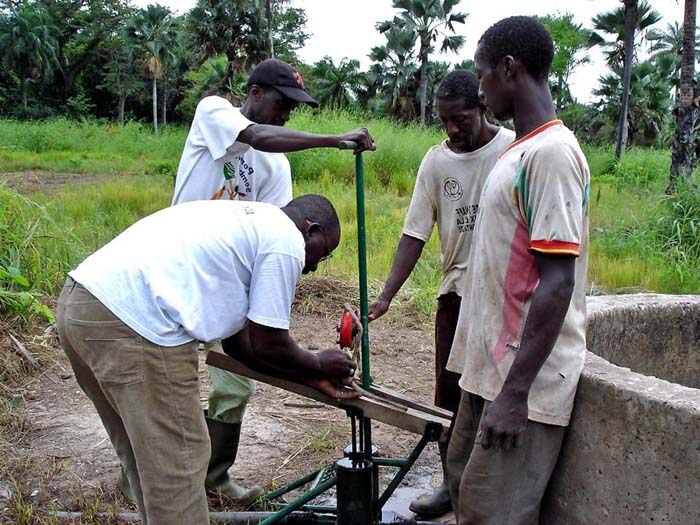
Boreholes provide unrestricted, cost-free access to a private water supply of up to 20,000 liters daily for households and businesses. A borehole installation is a more cost-effective long-term solution for many businesses requiring water daily, including golf courses, hotels, and farms. Since borehole water is treated differently than tap water, many people are skeptical about the safety of this seemingly endless supply of free water.
Using a water borehole is beneficial in many ways. While most residential customers are looking for a less expensive water option, they also want to know that the water they get will work for all their household needs. The water flowing out of a borehole must be potable and safe for all household uses, including washing, drinking, and cooking.
What makes borehole water different from tap water?
Borehole and tap water supply originate from entirely separate locations, which is the primary difference. Recycled wastewater that has undergone filtration to ensure its safety for human consumption is the primary source of tap water. Conversely, tap water is treated before it’s piped into homes and businesses, while borehole water is drawn directly from the earth. Borehole water only sometimes requires treatment because it comes from a natural source.
Drinking water from boreholes is typically safe. It is important to test your water source to ensure it meets drinking water regulations.
Negative effects of boreholes?
Drilling and building activities related to boreholes can disturb local ecosystems. They can also introduce pollutants into the groundwater, contaminating the water supply.
Can borehole water cause stomach problems?
Sewerage seepage from nearby septic tanks poses a threat to boreholes. The contamination of boreholes can also be due to other types of household waste. Regular water withdrawal from a large number of boreholes alters the saturation level of moisture. This leads to groundwater receding. People who come into contact with this polluted water have reported experiencing stomach problems.
Viruses, chemicals, minerals, and bacteria can affect borehole water. The quality of shallow groundwater is most affected by human activities, though, because:
- Chemical leaks that occur on the job.
- Systems for disposing of liquid waste, such as septic tanks, that are not well-maintained
- Leaking chemical and fuel tanks
- Leaching from waste disposal areas
- Intensive mining, industry, or agriculture
- The misuse or overapplication of insecticides, pesticides, animal manures, and fertilizers
Can you boil borehole water and drink it?
Since water from a deep borehole is unlikely to contain many harmful microbes, boiling it may not be necessary either. You can drink the water straight from the source or use a decent filter to make it safer if it tastes okay and is from a good depth.
The white stuff in the borehole water?
Boiling borehole water causes the water to evaporate, leaving behind the salt, which turns the water into a white powder. This is because borehole water includes salts. The white substance is unrelated to salt.
Advantages of Borehole Water
- Contamination from natural calamities like cycles, fires, floods, etc., does not usually reach groundwater. Borehole water is generally safe, although polluted municipal water supplies are often the first to go.
- Save money on water bills. The sole cost you’ll incur is filter and pump system maintenance. This is because you’ll be using water dug from your property.
- The mineral content of bore water is higher than that of treated water from cities. There isn’t a chemical additive in sight, and the water is as pure as it gets from far underground. Borehole water is rich in those beneficial minerals and is chemical-free.
Cons of Bore Water
Disadvantages of borehole water
- It is important to employ a water filter to purify the water that enters your home before drinking it, as the homeowner is responsible for the borehole water.
- The water in the bore is dirty. There are several potential sources of contaminants in borehole water. These include pollution from nearby factories, stormwater run-off, nitrates from adjacent farms, sewerage discharge, and pesticides.
- Borehole water uses power. A power outage means a water shortage. Solar panels or batteries can be a lifesaver for borehole water systems. These rely on pumps to bring water from aquifers to homes and businesses.
Conclusion
Contact Express Drainage Solutions if you have questions or want to schedule a consultation on boreholes for residential or business use. As the leading borehole drilling contractor in the nation, we take great satisfaction in consistently completing projects to the highest standard of professionalism. Our seasoned engineers ensure we can make an informed decision regarding the optimal location to obtain a reliable water supply by conducting thorough surveys and analyses.
